Using games and game-based strategies is a great way to learn. It’s that one sure-fire answer to the question: “What will engage students?” The Chronos Timeline playing-card game posted last year has already inspired several consultants, teachers and LEARN community partners to start developing their own games, and strategies and technologies to help students themselves create and share their own games are already available. Check out the latest fun ways to learn and review history in the elementary program below.
Also, for some great info on gamification, game-based learning, and on other related strategies, you might also want to read some of our blog entries!
- Do Board Games Have a Place in Education?
- All Fun and Games: Gamifying a Language Classroom
- La ludification d’une classe de FLS
- Beyond the Textbook: Gamifying Classroom Management
- 10 Years Later: Is Creativity Still Being Killed in Schools?
- La ludopédagogie
And finally, consider how Design-Thinking can help in Game Creation in Social Sciences:
Design-Thinking and Game Creation Templates

Visit our new “How to make a game” page to get started on making your own game, or to help your own students create their own. There you will find templates for designing games, but also a list of games for inspiration, and to get you “Ideating” big time!
New: Strategies for using Minecraft
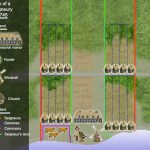
Minecraft: New France 1745
Do you like playing Minecraft? Did you know that you can use Minecraft Education to learn about many topics including the Social Sciences? Our RÉCITUS partners created an example…
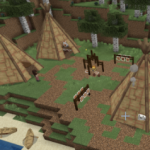
Minecraft: Iroquois and Algonquian Societies around 1500
Do you like playing Minecraft? Did you know that you can use Minecraft Education to learn about many topics including the Social Sciences? Our RÉCITUS partners created an example…
Board Game – Explaining Changes: Iroquoians around 1500 & 1745

A board game strategy that focuses specifically on the “Situate in time” and “Determine changes” intellectual operations (IOs). It is designed for Cycle 2 students who are working on exploring the changes that occurred to Iroquoian societies between 1500 and 1745. Go to page
Game Challenge – Can you tell what has changed? – New France 1645 -1745

Students place the cards correctly on a timeline, either near 1645 or 1745. The opposing team checks the back of the card to see if the team placed the card in the correct time period… Under construction here
I-Spy game strategy for Societies in 1500.
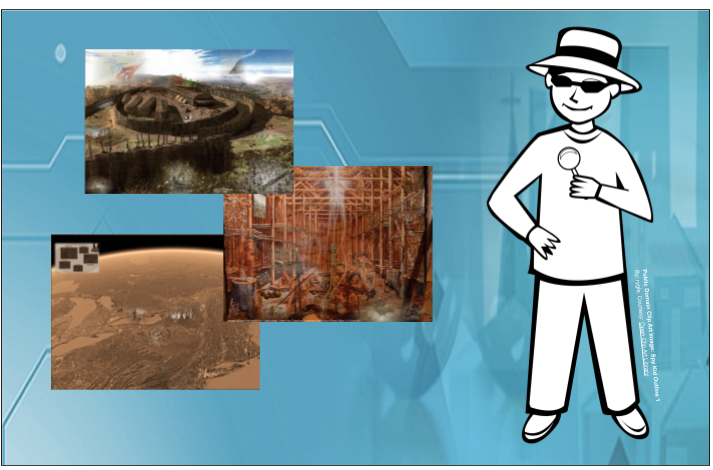
A learning strategy/game that students can play after covering societies circa 1500, this I-Spy strategy provides clues that require students to search for corresponding documents in a larger “book-sized” image. Go to page
Cycle 2: Explora Card and Board Game

Explora is a board game using playing cards and a timeline/map board that allows students to locate events and people in time and space. It’s a fun way to review a society and remind students of what they have learned throughout the year. Visit the main Explora Game page: Go to page
Cycle 2 and 3: Connect the Facts Card Games

Teams amass points by identifying the societies portrayed on playing cards, by classifying the information according to the aspects, and by connecting documents to various concepts. Cards available for 1500 Inca, Iroquoian, and Algonquian societies. Go to page
New: We now have a Cycle 3 version of this game strategies for 1980s societies here as well!)
Cycle 2 and 3 card game: Chronos Timeline

Chronos, is a board game inspired by Timeline, that features the 35+ events from the primary history program. The target audience for the game is the 3rd cycle of primary school. Go to page
Spot it! Card Game Printouts!
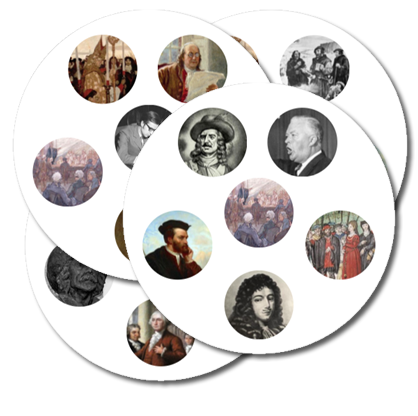
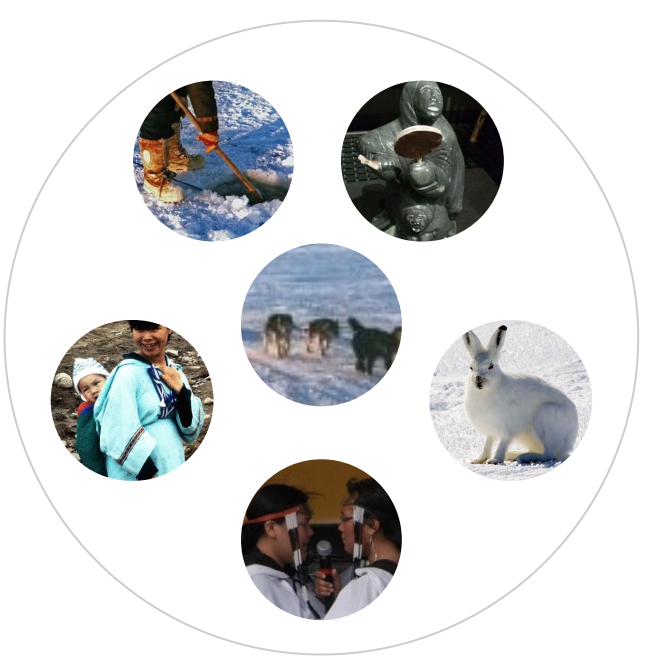
We have come up with a few trategies for using Spot It cards. We have a collection based on the 31 of the original Chronos game cards for the whole site, and another new one on only the Inuit in the 1980 till now. Go to page
Gaming Strategies for other levels, etc.
Cycle 1 – Find my friends Game
Students try to find students that match with their game card (i.e. the role) that they draw. For every one they find, they get to keep that card. Once they collect a card, they may pick up another one, and begin again to search for someone to fill that new role. Thanks to LBPSB team for sharing this activity! English and French versions available: Go to site
Secondary-Level Discussion Cards idea!
RECITUS Historical Discussion Cards ➦ Our English adaptationAdaptation - a skill or change of lifestyle that helps with survival. Adaptation - une... of RECITUS cards that were designed to help students discuss historical topics, and also to interview each other about concepts and course content.
